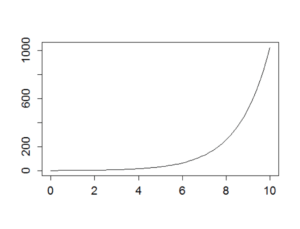Welcome to my blog
Grow & Scale A Business That Will Set You Free
What Beavers Know
Behold, I will do a new thing; now it shall spring forth; shall you not know it? I will even make a way in the wilderness, and rivers in the desert. — Isaiah 43:19
I’ve noticed the beavers at work along the river these past few mornings.
It seems that spring came in the northern hemisphere last week. A good thing. It’s been a long and malingering winter.
Some winters are like that.
Winter, for many, means hardship. Storms and brutal cold; grey skies, short days and long, dark nights; shoveling snow, icy roads and heating bills that seem to never end.
Things tend to lay dormant in the winter. Many in the animal kingdom hide out and hibernate.
In the people kingdom too.
Then the spring comes. New life, new energy, new hope. A reprieve; a new beginning.
And so it is in all our lives.
What we do in the springtime of our lives matters. How we till the soil; what we plant; where we plant it; how much we care.
What we build; how we build it.
The summer will surely come. And then the harvest time. It always does.
That harvest, what we reap, will depend on these very moments in our lives: What we sow in the here and now will dictate the seasons yet to come.
- In our businesses and careers;

- In our networks and relationships;
- In our marriages and partnerships and families;
- In our health and fitness;
- In our financial lives;
- In the service of others.
It’s easy to be complacent in the spring, what with the weight of winter finally lifted off. But spring is a time for focus; the time to re-charge, to re-double our efforts. The seeds that we plant, the investments that we make, the care and the attention that we bring to the spring in our lives will yield a thousand fold in the soft glow of our autumn time.
Of course, the seasons of our lives don’t always correspond with Mother Nature. I surely have experienced some desperate winters in the midst of spring; and brutal heat that killed the seeds long after harvest time had come.
But the spring of the year is a good time to remind ourselves of the never-ending rhythm of things; that even in the darkest of nights, the light will return. And that when it does, we have an opportunity to begin again; to create anew; to make our lives the masterpieces they’ve always been meant to be.
Jim Rohn said, “You cannot change the seasons; but you can change yourself.”
In every moment – in every spring – we get to choose.
Wherever you are, whatever the season for you, let’s begin again.
____________________________________________________________________
When you’re ready to begin, let’s connect. Email me: [email protected]
Why The Destination Matters
We wandered in the fog. For days.
A storm had enveloped the lower part of the mountain right after we had landed at base camp. We had heard that the weather was “nice” up above. So in order to push forward toward Denali’s summit without jeopardizing our supplies of food and fuel, we had decided to traverse the mighty Kahiltna Glacier despite the lack of visibility. 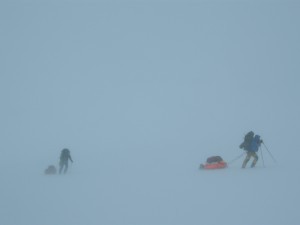
We navigated from wand to wand; and from way point to way point.
At times, I could barely see Ann on the rope 60′ in front of me.
Happily we knew exactly where we were going.
Which was a good thing.
Knowing where you want to go is essential in the mountains.
It’s essential, too, in business… and in life.
Unfortunately, all too often, we lose our direction. We lose sight of the path. We don’t know exactly where we want to end up.
Clarity is key we tell our coaching clients.
You must know your target.
You must be clear on what you want your outcome to be.
You wouldn’t likely wander over to the airport today, saunter up to the ticket counter and say, “Gimme a ticket.”
The ticket agent would look at you a bit strangely and then ask, “Where to?”
If you said, “Barcelona, Orlando or San Francisco,” the agent would likely then query, “Which one?”
Too often we make the mistake in our businesses (and our lives) of not knowing “which one.”
- Who is your ideal client or customer?
- What is the product or service that yields your highest return?
- What do you want your numbers to be this year?
- Exactly how many hours do you want to work?
- Where do you want to take your career?
- What are your specific business goals? And life goals?
- What is essential to your success and satisfaction?
A GPS will get you within 30′ of your destination. If you go off track, it tells you so.
“Recalculating.”
Always with the destination locked in place.
But without that destination locked in place, you can wander down blind alleys, into “bad” neighborhoods; and you can get pretty far off course: Distracted by the latest in marketing, the hottest of hardware, the coolest of apps; doing advertising regardless of outcome, chasing clients regardless of worth.
Doing things that look “busy” but don’t really get you to where you really want to go.
And you’re ineffective as a leader because, seriously, who wants to follow someone who looks lost?
Worse, you’ll never know when (or if) you arrive.
I love climbing is South America. The Andes are one of my favorite ranges. Unfortunately my Spanish isn’t very good.
The one word I do know is: ¿Donde
Where.
It’s a pretty important one to know.
___________________________________________________________________
Coaching will help you get clear on your destination and, through coaching, you’ll create a powerful, systematic plan to get you to where you want to go. Are you ready? Email me. Let’s have a conversation. Because, seriously, life is way too short to be wandering endlessly in the fog. [email protected]
Why You Will Become Obsolete
Protectionism is in vogue.
Close the borders, circle the wagons, build the bunkers.
Keep local businesses safe from foreign competition.
Except foreign competition isn’t really the danger.
The danger is much closer at hand.
The danger is you.
The problem is that you – and me – all of us have become shallow in the way we think and act.
We skitter along the surface of things. We allow ourselves to live in a world of distraction.
We’ve become addicted to the stimulation and outside input, checking and re-checking our smartphones and our tablets and our emails; responding incessantly to the phone calls and messages and notifications and alerts. Overwhelmed and inundated by the expectations and the deadlines and the demands, endeavoring to pay attention to everything and succeeding only at a continuous partial attention.
We’ve become addicted, as Jim Collins, author of that wonderful business book, Good to Great, says,… we’ve become addicted to the undisciplined pursuit of more. 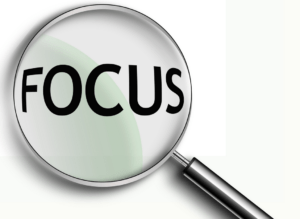
We’ve lost the capacity to focus, the capacity to do deep work.
Without the capacity to do deep work, we are replaceable.
Amazon has launched a cashier-free store. Uber has driverless cars. Black Rock is using robots to pick stocks. Watson provides complicated medical diagnoses at lightening speed.
Many professionals – my colleagues in the law included – have a vague dis-ease around the rise of artificial intelligence.
They should.
Because the superficial tasks we do – that is, most of the stuff we tick off our to-do lists – can be done better, cheaper and faster by AI.
The gift of our humanity, though, is our ability to ponder, reflect, refine.
Our ability to create.
Our ability to do deep work.
Our ability to focus.
Focus will be the currency of the new economy.
Those who can focus will thrive.
Those who can’t will become obsolete.
Focus is a muscle that needs to be (re)trained.
Cultivate the lost art of focus before you become obsolete.
___________________________________________________________________
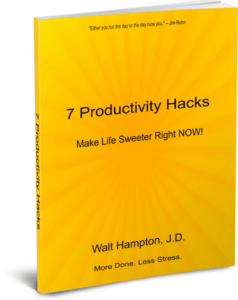 Want some tips to help you focus? Download your free guide HERE.
Want some tips to help you focus? Download your free guide HERE.
How To Live 11 Years Longer
How would you like a straightforward way to add 11 years to your life? It doesn’t require supplements or calorie restricted diets. You don’t need to count your steps or exercise fanatically.
You need to do just one simple thing.
Stop looking at your smartphone.
Recent studies suggest that many professionals check their emails 36 times an hour. Interruption science tells us that every interruption in our day has a “cost” in terms of lost focus and productivity. Researchers have measured the cost. It’s between 11 minutes and 25 minutes.
So work with me here. We’ll go with the lower number and assume a 10 hour day: 36 checks of the smartphone every hour x 10 hours each day x 11 lost minutes of productivity = A lost 3960 minutes of productivity every day. (Yes, you’re scratching your head wondering how you could lose 66 hours a day.)
Another study from the world of interruption science: We’re interrupted or cause ourselves to be interrupted, usually with our smartphones, every 3 minutes of the day. Let’s use conservative numbers again and go again with a 10 hour day. So, an interruption every 3 minutes would be 20 interruptions an hour x 10 hours x 11 minutes = A lost 2,200 minutes of productivity each day.
Whew. That’s a much better outcome. Only 36 lost hours. 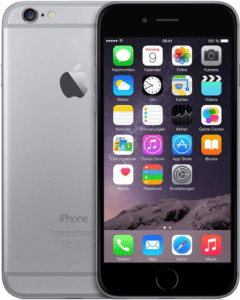
But put aside focus and productivity for a moment. The are other costs. Constant distraction:
- Prevents us from doing deep, uninterrupted work.
- Causes stress and overwhelm.
- Damages our creativity.
- Isolates us and dishonors our important relationships.
- Separates us from the natural world.
App developer Kevin Holesh was curious about his daily screen time. He created an app to track it. It’s called Moment. You can download it. On your smartphone. There are over 8000 users.
Holesh discovered that many professionals spend between one and four hours a day on their smartphones; nearly 100 hours a month spent checking emails, texting, gaming and surfing the net.
Eleven years over the course of a lifetime.
Eleven years on your smartphone.
I think there may be better ways to spend your time.
Reclaim your 11 years.
______________________________________________________________________
 How about 7 simple hacks that will make you a lot more productive without the stress and overwhelm? Go HERE and download them now.
How about 7 simple hacks that will make you a lot more productive without the stress and overwhelm? Go HERE and download them now.
Axis Of Evil
I hate the Axis of Evil. Because, well, it’s just evil.
I’m talking about the x axis. The horizontal line. That place where zero lives.
As in zero leads; zero clients; zero income.
Zero.
I hate zero.
But all businesses start along the x axis. They start at zero.
The noisy Internet marketing hucksters want to convince you that, if you buy their latest tools, tricks, gadgets or programs, you’ll enjoy overnight meteoric success.
But having started four successful businesses from scratch, from zero, I’ll tell you that overnight success is the consequence of a lot of overnights. That success takes time; a lot of time. That success takes work; a lot of work; hard work.
That success is not linear. That generally the road to success traverses the evil x axis for a long, long, long time.
No one wants to talk about the x axis because it’s not sexy.
Everyone would like it to be easy; but it’s not easy.
Success requires that you show up every single day and: Do. The. Work.
Yes, you need a proven, reliable system to follow (like Book Yourself Solid®). Yes, you need to have a clear plan. Yes, you need to have laser-like focus.
But, even with all of these critical components in place, there are many, many days that feel as if there is absolutely nothing at all happening; it feels like you’re looking out the window on a cold winter day and wondering why there aren’t flowers in the garden when you did all of that planting.
You work and work; and you don’t see results.
You see zero.
With a proven system, with a clear plan, with laser-like focus, you need to stay at it. You need to be consistent.
You must not falter.
When you travel far enough along that evil x axis, there is a tipping point. There comes a moment when the pieces fall into place. And zero disappears.
Because business success is an exponential curve.
One day the clients show up and the money pours in; and people point to you and say, “Look at that overnight success.”
Because they’ve never seen – or experienced – the axis of evil.
___________________________________________________________________
A powerful 90-day plan is a powerful antidote to the axis of evil. Join us for a free webinar training. Go HERE to register now.
DOWNLOAD your FREE BOOK!
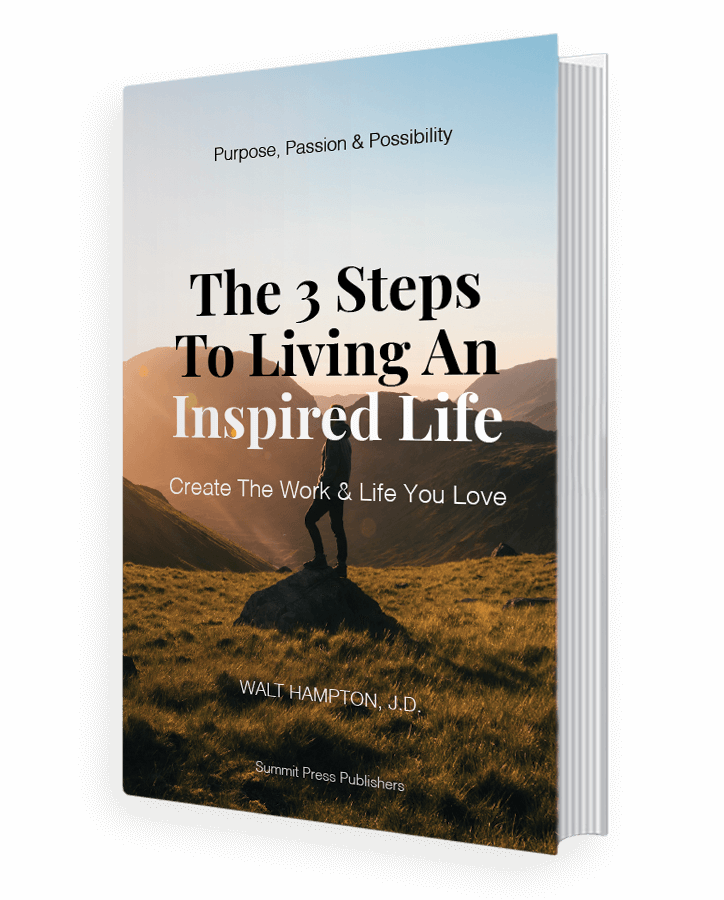
DOWNLOAD Your Free E-Book NOW! Click Below And Get Going!
Click below for your copy of Journeys!
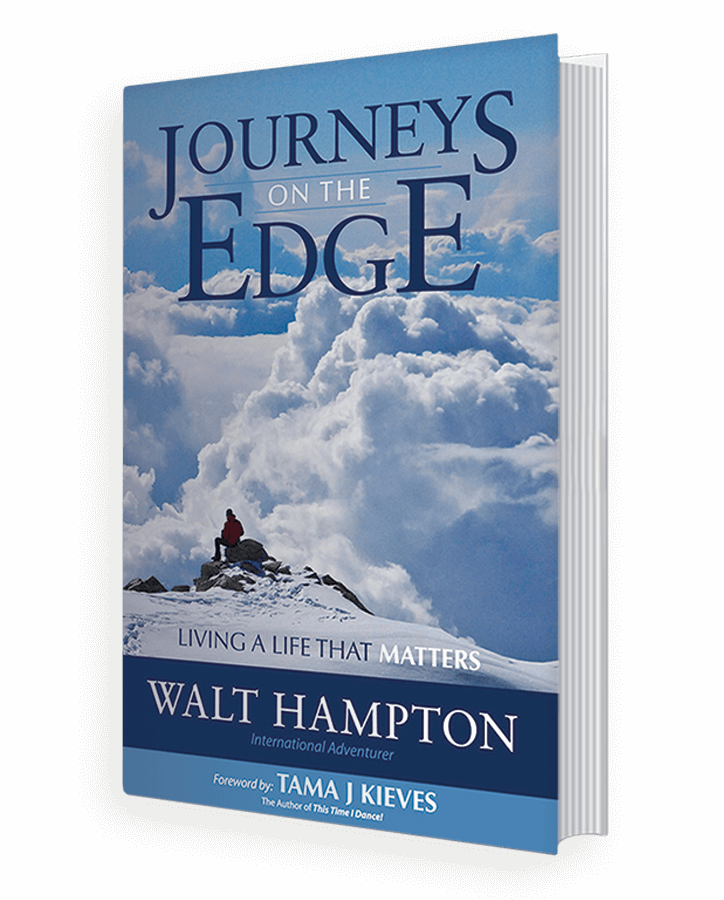
You’ll Get A Signed Copy!
Click on the button for your copy of my brand new book “The power principles of time mastery!”
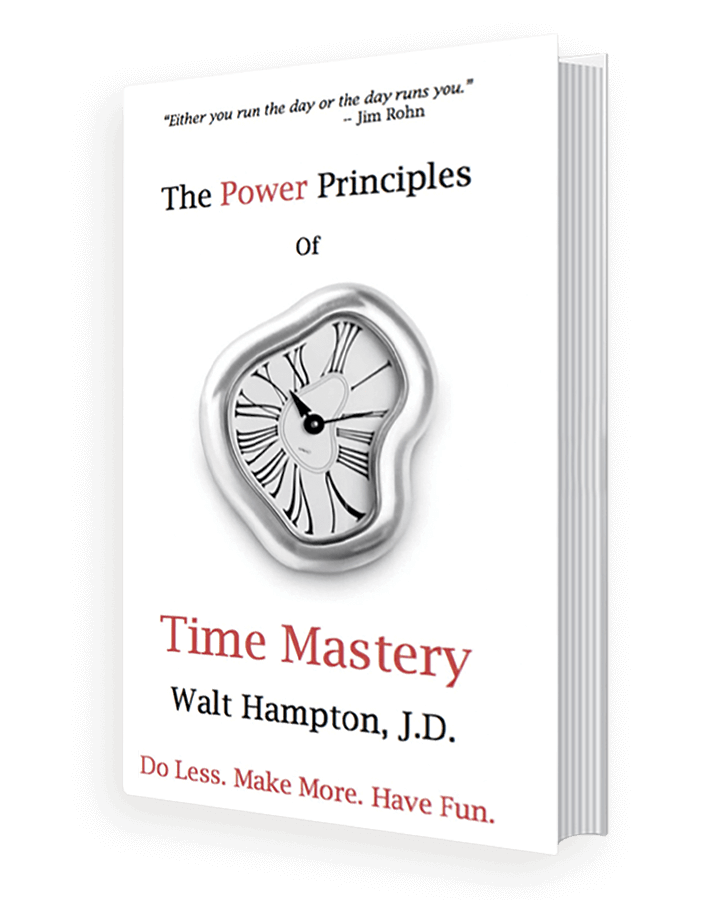
You’ll Get A Signed Copy!
Categories
Adventure
Finding The Way
Journeys
Leadership
Success
Ultra Training

